Communication: China's poverty alleviation "Happy Grass" rooted in the Chinese and African Republic
Author:Xinhuanet Time:2022.07.28
Xinhua News Agency, Bangji, July 27th: Chinese poverty alleviation "Happy Grass" rooted in the Chinese and African Republic
Xinhua News Agency reporter Luo Yu
In the Malaysia area near Banji, the Capital of the Central African Republic, in the afternoon of July in midsummer, the sun was hot, and a mushroom of about 6 square meters and four walls covered with palm leaves was dark and cool. There are two 2 meters long and 1 -meter -wide beds in the shed. Fatima, 40, squatted on the soil, fiddled with a full gray -white lid with his hands, and it was difficult to hide the joy of harvest on his face.
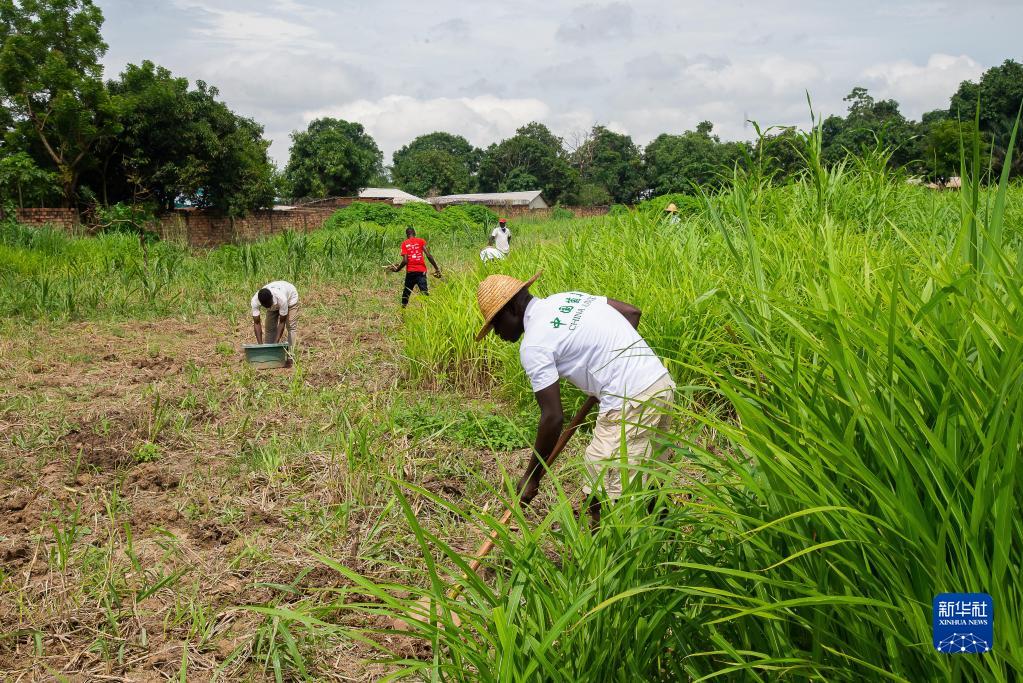
On June 1, in the suburbs of Banji, the capital of the Chinese and African Republic, local people planted bacteria. Xinhua News Agency reporter Luo Yu
Fatima is one of the many beneficiaries of the China -African grass technology project in China.
This aid project undertaken by the China National Murfee Engineering Technology Research Center and the Fujian Tianthara Cao International Cooperation Co., Ltd. not only enriched the tables of the Chinese and African people, but also spread agricultural technology, promoted local employment and poverty reduction.
Due to the influence of many years of war, the Central African Republic has a high rate of unemployment and a large number of poor people. The latest data of the World Grain Program shows that about half of the country's population is in a serious state of unsafe food.
The bacterial grass technology was invented by the Chinese scientist Lin Zhanzheng. It refers to cultivating foods for food and drugs, producing bacteria and governance ecology with bacteria "grass -generation wood". It has become an important industry for poverty alleviation and getting rich in China. In 2017, this "China Plan" was listed as a key promotion project of the China-United Nations Peace and Development Fund, and has taken root in more than 100 countries.
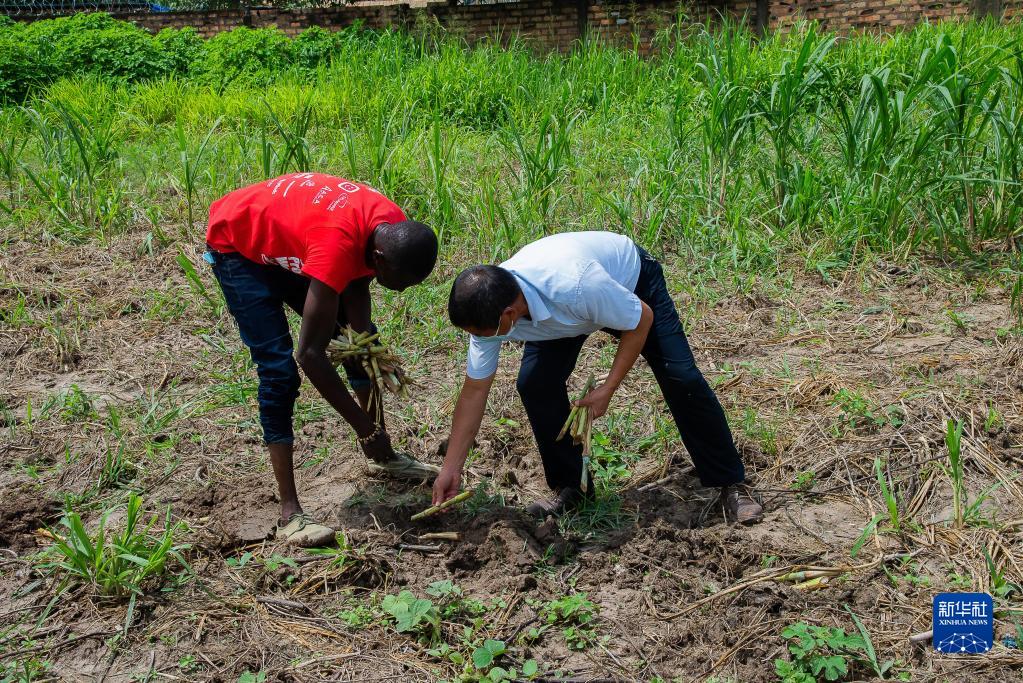
On June 1, in the capital of the capital of the Chinese and African Republic, Chinese experts guided local people to grow bacteria. Xinhua News Agency reporter Luo Yu
In May 2021, experts from the China -Africa and African Technology Projects went to the Republic of China and Africa to establish a bacterial grass edible fungus production line, bacterial grass seedlings breeding base, carrying out technical publicity, personnel training and demonstration promotion.
The project team cooperated with the Institute of Agriculture of the Central African Republic to promote. Irene Dongbei is from the institute. After careful training by the project team, she has been familiar with the production process of the cultivation of the edible fungus in the cultivation of the grass.
According to Chen Kehua, the project leader, as of now, we have held 16 training courses for the technical training class of bacteria and 613 trainees; 5 cervical cultivation of food and medicine cooperation organizations, 4 bacteria grass and animal cooperation organizations, promoting fungus bags 314 demonstration sites for production demonstration sites and 314 technology demonstration households.
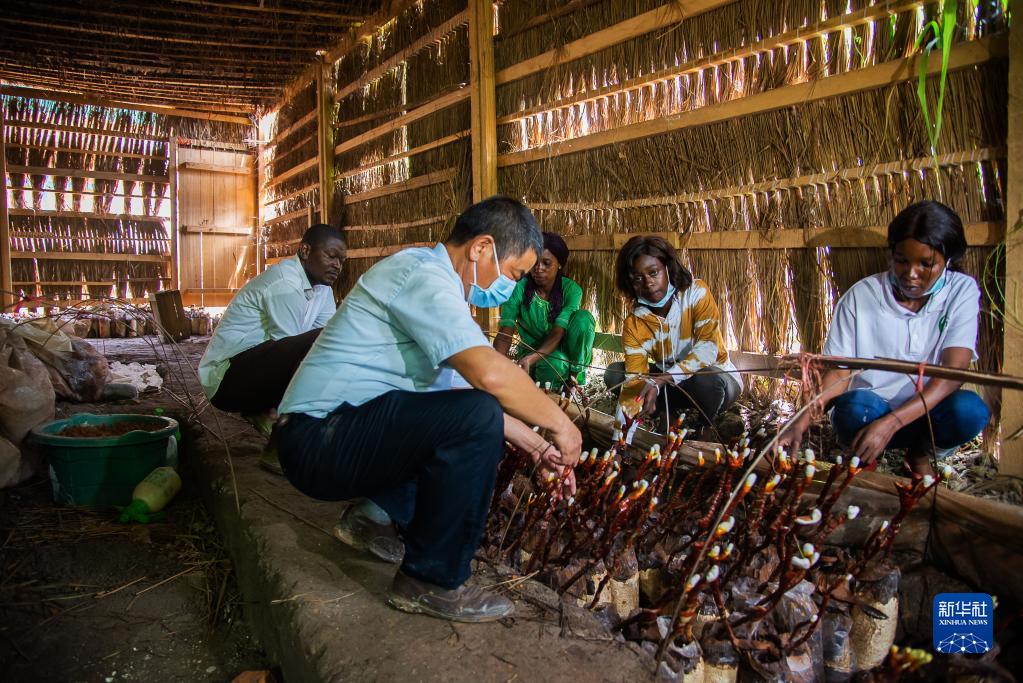
On June 1, Chinese experts and local employees worked in the mushroom shed in the capital of the Chinese and African Republic. Xinhua News Agency reporter Luo Yu
Fatima, who has mastered technology and put into practice, has been rewarded. Her mushrooms can harvest 3 to 5 kg of flat mushrooms every day. Relying on social media propaganda, her mushrooms are famous in the local area.
"Our local mushrooms are wild. No one knew artificially mushroom technology before. Now, we have a reputation. In addition to locals, we have in short supply." Fatima recently accepted Xinhua News Agency reporters. During the interview, everyone likes to eat mushrooms, hotels and restaurants to order, which is really hopeful career.
Relying on her own team, she registered the company and regularly trains fungus technology for local women.
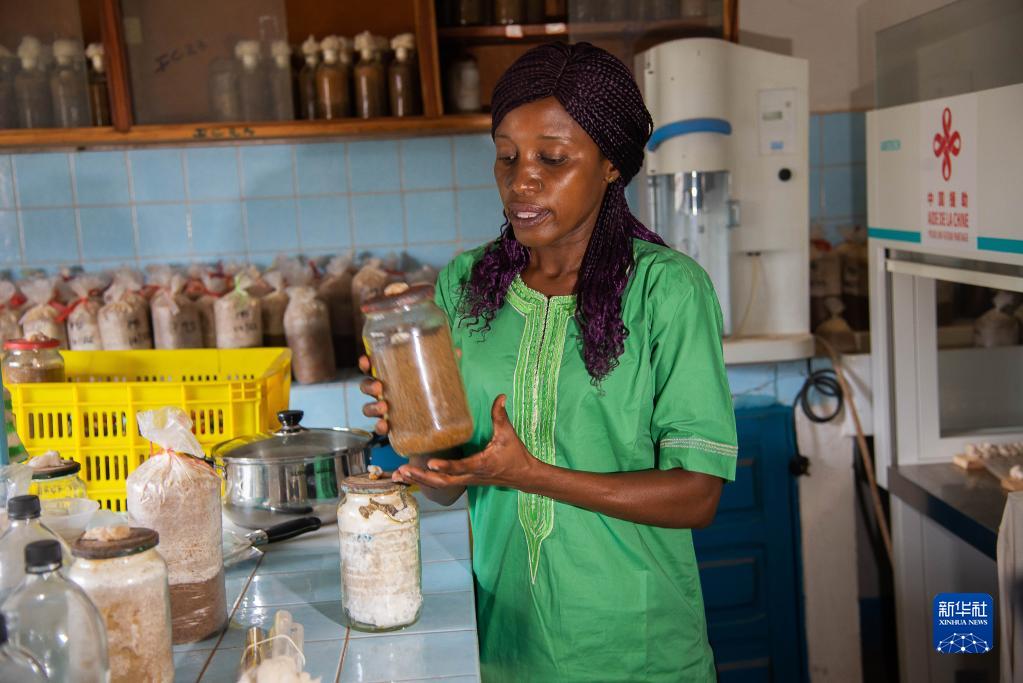
On June 1, in the capital of the Chinese and African Republic, technicians checked the mycelium bottle in the laboratory. Xinhua News Agency reporter Luo Yu
"Now this technology is getting more and more popular. Many people come to consult our training. I am busy making a plan and hoping to create employment opportunities for women and young people." Fatima said.
There are not a few people who have learned technology like Fatima to learn technology, and they are committed to promoting. "China -Africa Life" is an non -governmental institution responsible for education and training and humanitarian assistance. The person in charge of Pattay set up a mushroom shed after his office, and the vertical ganoderma lucidum is growing up.
"At present, we have trained more than 100 people. Recently, we went to visit the students' mushroom sheds. It has a good growth." Pattane told reporters that China and Africa have suffered the suffering of war for many years. Many young people have not stable jobs. Provide them with employment and entrepreneurship opportunities.
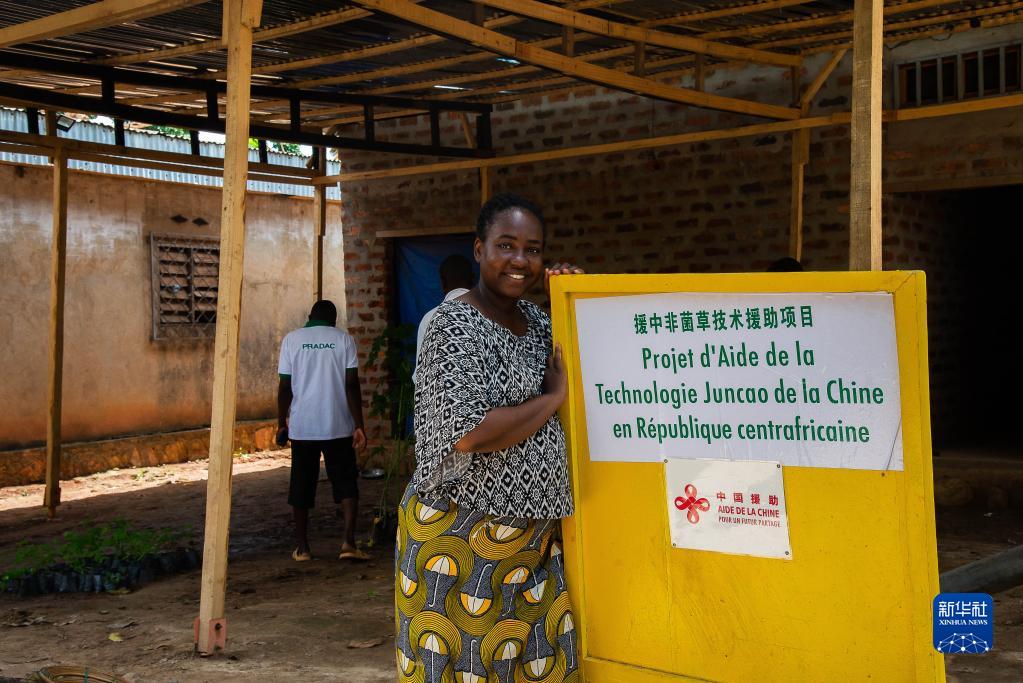
On May 31st, in the capital of the Capital of the Chinese and African Republic, Fatima stood next to the Chinese African Cermia Technology Project Board. Xinhua News Agency reporter Luo Yu
The Tang Bosco Vocational and Technical School in Banji is a professor of agriculture, auto repair, sewing and other technologies. The project team has held 6 -phase bacterial grass technology training in the school.
"I have taken the theoretical class of bacteria grass and I have also taken a practical lesson. This project is very good. When I graduate, I have to grow mushrooms." Kelly Ivano, a first -year agricultural student, told reporters.
In addition to planting fungi straw mushrooms, bacterial grass technology is also used for breeding of livestock and poultry. There are currently 101 farmed grass cultivation. Emma Bonako is the head of the Karo Agricultural Cooperative in Banji Suburban. Her farm fed 64 pigs and 23 sheep. "Pigs and sheep especially like to eat bacteria feed. They look good. I plan to grow bacteria myself now."
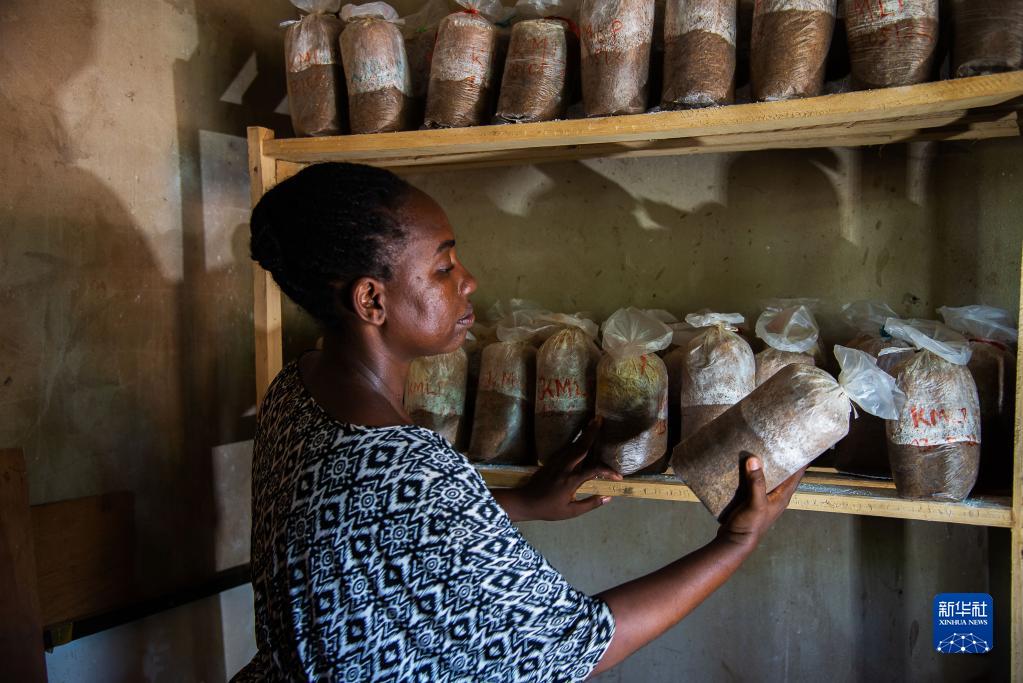
On May 31, in the capital of the Capital of the Central African Republic, Fatima checked the fungus bag. Xinhua News Agency reporter Luo Yu
In order to better promote fungal grass technology, the project team is building a 854 -square -meter production workshop, including the production of bacteria, inoculation, incense culture, and mushroom demonstration.
"We will continue to strengthen the promotion of bacteria and mushrooms, so that the Chinese and African people can feel the charm brought by the" Happiness Cao ", and at the same time fully develop domestication of local wild food fungus resources to solve the problem of new local food shortages.The way. "Chen Kehua told reporters.This is the mushroom shed of the "China -Africa Life" institution shot in the capital of the Chinese and African Republic on May 31.Xinhua News Agency reporter Luo Yu
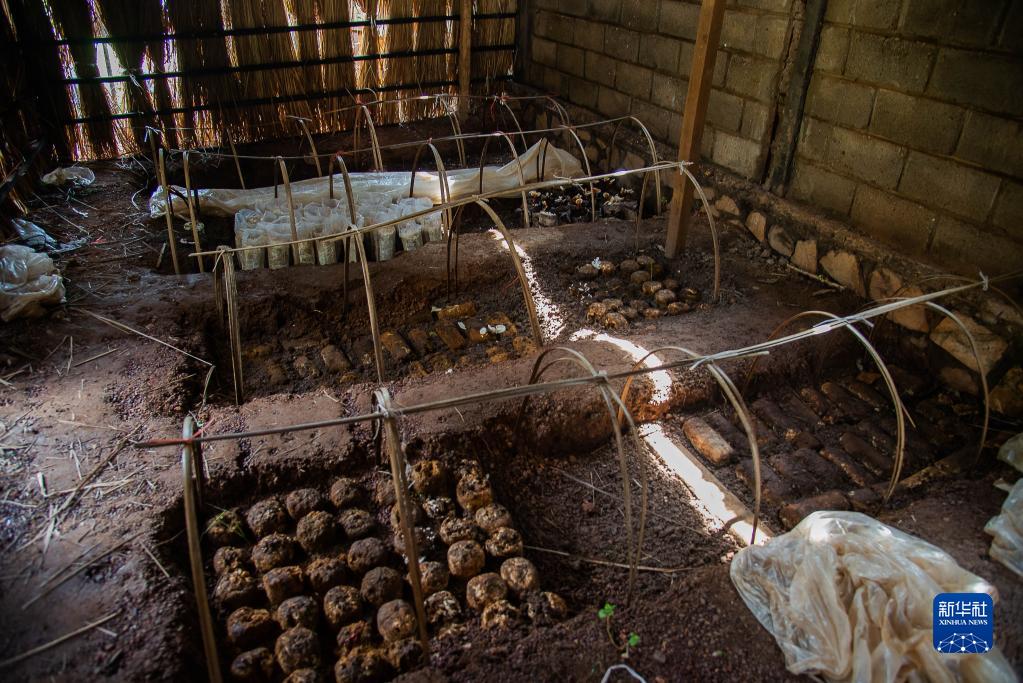
On May 31, in the capital of the Capital of the Central and African Republic, Fatima checked the Ping mushrooms he planted.Xinhua News Agency reporter Luo Yu
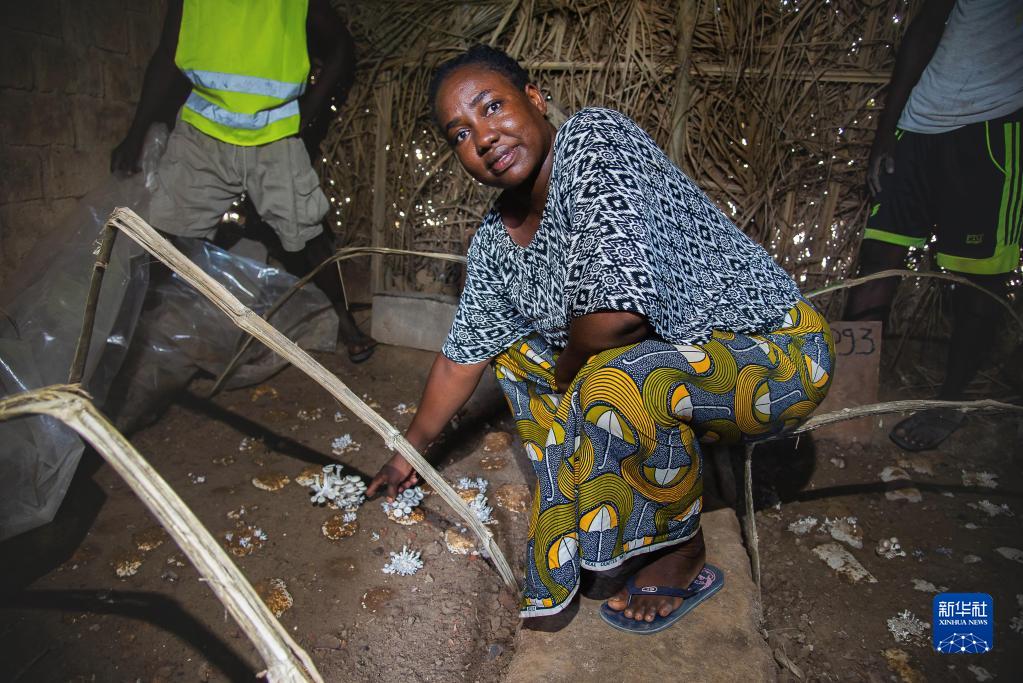
- END -
Several people in the Politics and academic circles of Scotland expressed their willingness to promote exchanges and cooperation with China
Xinhua News Agency, British Edinburgh, June 25 (Reporter Huang Zemin) Several people in the Scottish political and academic circles recently met with Chinese ambassador to the UK Zheng Zeguang that in
Not as good as India in Japan?Yale University released data

Author: Liang YouzhiSince the outbreak of Russia and Ukraine's conflict, the Schoo...